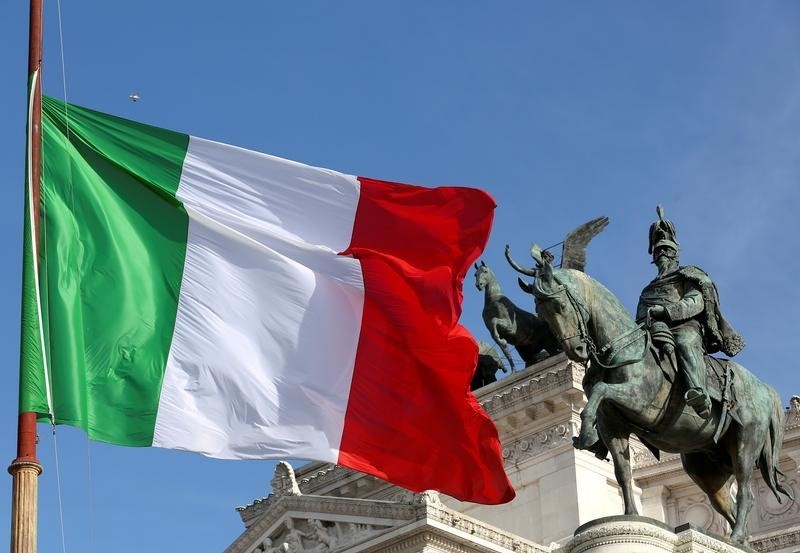By Geoffrey Smith
Investing.com -- The European establishment may not relish the prospect much but Italian financial markets have welcomed the clear election victory of Giorgia Meloni’s right-wing coalition at the weekend.
Analysts said the result will give the country the chance of a stable government for a full five-year term – a rarity in Italian politics – while the nuanced messaging ahead of the election by Meloni suggests that she won't rush into outright confrontation with the rest of the Eurozone over its economic and budgetary policies.
Even so, the country’s huge national debt, low growth rate, and increasingly dangerous global market backdrop leave Meloni and her relatively inexperienced team little room for error.
ING economist Paolo Pizzoli called the result a "goldilocks" one for Italian assets: "enough votes for the right-wing coalition to ensure stability but not too much so it can change the constitution with a two-thirds majority."
The stock market agreed, with the FTSE MIB rising 1.3% on Monday, the best performing market in Europe, in hopes that Meloni will deliver on her promised cut in corporate income tax. Bond markets were less convinced, on a day overshadowed by much greater volatility in British markets. The yield on the 10-year benchmark yield rose 12 basis points to 4.48%, but its underperformance against other Eurozone debt was not extraordinary: the 'spread' over the analogous German bond widened by 7 basis points.
The composition of the winning bloc was widely seen as a further benefit, given the disappointingly poor performance of Matteo Salvini's Lega party. Salvini has historically been a much more disruptive presence with regard to Italy's international relations, cozying up to Russian President Vladimir Putin and flirting with rejection of the euro. However, the Lega only polled less than 9%, down from over 17% four years ago.
That weakness makes it unlikely that the Lega will be able to claim the highly influential Finance Ministry position in the new cabinet, an appointment that will likely say much about both the tone and the policy course of Meloni's government.
Whoever she chooses as Finance Minister will have his or her work cut out. With interest rates hitting a nine-year high this summer and still rising fast, the cost of servicing Italy's 2.77 trillion euro debt mountain is likely to crowd out other public spending that could be used to maintain living standards.
"Markets are still in discovery phase, and ready to test the new government, especially in the current volatile environment." analysts at Algebris said. "The Finance Ministry appointment and the upcoming budget will be the first key to watch."
Meloni has not made things easy for herself by making expensive promises in the run-up to the election. Nicola Nobile, an analyst with Oxford Economics, said before the poll that if the bloc's promises were executed in full, they would push the budget deficit to 6% of gross domestic product by 2027, leading to a "severe market reaction for Italian bond yields."
However, he noted, "our baseline view remains that the coalition's election promises are likely to be watered down or abandoned in the process of governing. There are strong incentives, such as the need to have ECB backing, for the next government to maintain a more prudent approach."
The European Central Bank's help has been essential in keeping Italy's bond market orderly this year as global inflation has surged. It is currently throwing at Italian BTPs the money it gets as the German and Dutch bonds in its quantitative easing portfolio mature: that is gradually but consistently weakening the ECB's principle of treating all members of the currency union equally.
Moreover, the ECB has given itself the power to skew its policy support even further in Italy's favor with a new tool known as the Transmission Protection Instrument – albeit that will be dependent on Rome following Eurozone rules on fiscal and economic policy. Meloni has inherited a budget package from Mario Draghi that had the EU's approval but will need to change it if she wants to avoid going back on too many of her own election promises. For now, analysts are betting that the changes she presses for won't be deal-breakers.
"Meloni would have little to gain but a lot to lose from courting conflict with the EU," said Berenberg Bank chief economist Holger Schmieding in a note to clients, pointing to the 192 billion euros in aid earmarked for Italy from the "Next Generation EU" pandemic recovery program, and the prospect of continued ECB support in return for good behavior.
